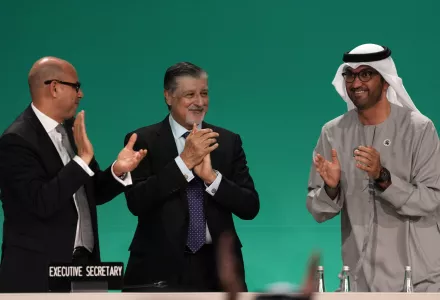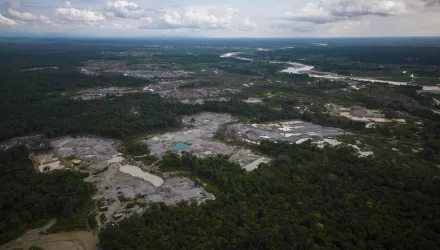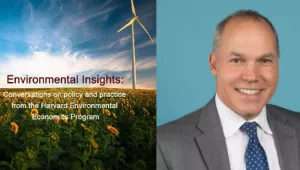
Overall, COP28’s outcome should be celebrated, but transformational change will come from private investment and national policy.
Since the gavel came down on COP28, two mutually incompatible narratives have taken hold. Optimists see the inclusion of hydrocarbons as a historic accomplishment, since every government for the first time intends to “transition away from fossil fuels.” Pessimists say that the outcome is pockmarked by loopholes, seeing “transitioning away” from fossil fuels, instead of “phasing [them] out”, as a sop to petrostates. Meanwhile, language around “unabated” emissions has been labelled an excuse to keep burning hydrocarbons while relying on unproven carbon capture technology. In Dubai, small-island state negotiators made their opprobrium known, complaining that they were not even in the room as the text was finalized.
The truth is, as many have already noted, viewing COP28 as a success or failure simply isn’t the right framework in an age when we are implementing, rather than negotiating, the Paris Agreement.
On the face of it, the COP outcome is good for the world. Yes, the decision is simply a collection of words on a page, but COP is fundamentally a text-based negotiation; words are all that COP negotiators can offer. Yes, targeting a transition from fossil fuels hardly seems groundbreaking in 2023, but the real question is what should we expect from a COP decision?
Optimists and pessimists are disagreeing on the “Global Stocktake,” a decision that represents what could be called “vibes-based policymaking.” Unlike the other 10,000+ words settled in various COP28 committees, which are formal guidance to the 1992 UN Framework Convention on Climate Change, the Global Stocktake has no legal force. Rather than punishing rule-breakers (cf. national law) or creating binding commitments (cf. international law), the feedback mechanism by which this agreement lowers CO2 emissions is much more diffuse, relying on two different channels to affect policymakers’ and investors’ expectations for the future. In other words, vibes.
First, there is the “private sector channel,” where private investors and companies see the COP decision as an indication of future domestic policy and adjust their behavior accordingly. In theory, governments committing to transition away from – or phase out – fossil fuels will signal that hydrocarbons are unviable, and suppress investment.
Second, the “public policy channel.” Once a text has been agreed at COP, it is hard for countries to backtrack. Negotiators are empowered by previous government statements, so this COP decision allows diplomats to go further on behalf of their own governments, and to push their interlocutors.
At the conference’s start, Al Gore wrote that “there is only one measure of success for COP28: will it include a commitment to phase out fossil fuels or not.” According to Vice President Gore, “if COP28 does include such a commitment it will be a smashing success; if it does not it will be a failure.” In the end, there was no such commitment, but that’s a bold dichotomy to place on the language in a non-binding cover letter.
It is true that this COP28 decision will affect what’s possible at COP29, and will influence boardrooms around the world. Historically, the public policy and private sector channels have helped limit warming from an expected 5.7°C at the signing of the UNFCCC in 1992 to 2.7°C today. But both channels remain indirect, and so the key questions are these: if the COP28 decision had said “phase out” fossil fuels instead of “transition away,” would an investor give up on a fossil fuel project that appears profitable today? If the cover letter had not carved out “abated” fossil fuel burning, would a petrostate turn off the gas taps?
Most participants I spoke with at COP28 agreed that the answer to these questions is an emphatic no. Language in a COP decision is not the difference between success and failure. Affecting the mood of private investors and future negotiators is important, but it is not sufficient to transform the global energy system. In the end, COPs work by consensus – with only a few holdouts, most governments in Dubai would have voted for stronger language, and those countries are free to act as aggressively as they can on fossil fuels. In fact, with most developed countries pushing for more ambitious pledges than what was agreed, the private and public policy channels are already working.
Instead of debating the COP decision’s language, which may eventually work its way into domestic policies and commercial markets, we’d do well to directly focus on what matters: actually holding governments to the commitments they’ve made. This will require much more than language, including carbon pricing, large-scale financing, and far-reaching regulations on emissions. Those will come from national capitals, not the UN plenary.
This is the first of two articles on carbon finance post-COP28. The second is on carbon markets and Article 6 financing. The Belfer Center’s work on climate finance is in part supported by a gift from Abu Dhabi Commercial Bank.
Sandler, Ely. “COP28 Delivered Its Mandate for Incremental Progress - No More, No Less .” Belfer Center for Science and International Affairs, Harvard Kennedy School, December 18, 2023




